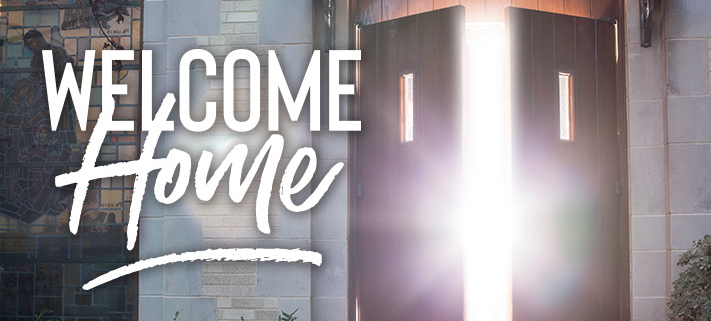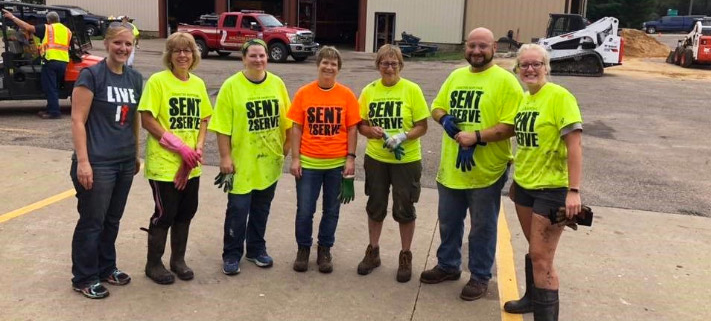Christian roots
Old photos lead to a special golden wedding anniversary moment.
John A. Braun
The journey all started early in their marriage with a box of old family photos in the attic—a big box, a “good load” as Harvey explained. Karen found out that some of the photos of Harvey’s family went back 150 years. She thought Harvey should go through them and explore his family roots.
So Harvey started, but he needed a little help. He remembered his father, mother, and siblings, of course. But his grandmother died when his father was 21, and his grandfather died when Harvey was 6. That meant Harvey’s personal knowledge had spaces that could only be filled in with memories of others. Also some of the certificates they uncovered were in German. The pictures of cousins, aunts, uncles, and extended family were covered in dust, and their stories hidden in the fog of memory.
Help came from his Aunt Altine, the second youngest of his father’s siblings. She identified many from the photos and told a few stories from her memories. Grandparents and great–grandparents began to emerge out of the dust and fog. Each picture became more than an old photo. It revealed another piece of the family’s history.
The stories emerge
Grandpa Philip Weigand had married Jane Coulter. She was Irish, and with a name like Weigand, he was, of course, German. Philip was a carpenter at the time and worked on the street cars in Milwaukee, carving the decorations for the cars. Jane was a seamstress. Exactly how they met remains a part of the mystery, but their families lived close to each other north of Milwaukee. They were married on May 2, 1882. Harvey notes that it was God’s hand that brought them together.
Jane grew up in an Irish Protestant family. Most likely she spoke Gaelic. Philip’s family was Lutheran. After they were married, Jane went to school to learn German, studied Luther’s Catechism, and was confirmed. The members of the congregation admired her for her willingness to learn German.
She and Philip had six children and lived on a farm near Theresa, Wisconsin. Jane cared for the children. The cousins remembered their grandmother for her needlework and her role as taskmaster in the house. She was never idle. One story illustrates her spirit. While she was doing some needlework and one of the children was mopping the floor, she exclaimed, “You missed a spot.” It had to be done right.
Taking another step back meant looking for connections with his grandmother’s family. Two of the pictures in the box were of Harvey’s great–grandparents, John Coulter and Sarah McKeag. They were married in a Presbyterian church in Carrowdore, Ireland, on May 13, 1848.
It was a difficult time in Ireland because of the Great Hunger, as they called the Potato Famine. John and Sarah immigrated to the United States, settling for a time in New York. They welcomed a daughter on Sept. 10, 1849. Sadly, that child died as a toddler before they left New York.
Early in the 1850s the Coulter family made its way to join others from the family who had immigrated and settled north of Milwaukee in the town of Wayne, near Theresa. Harvey’s grandmother, Jane, was born there in 1857.
The Christian ties that bound their family together were especially important to Harvey and Karen. The family wasn’t all Lutheran or German. One part of the family was very active in a Protestant church that was comfortable for Irish immigrants. The other side was active in the Lutheran church where they were comfortable with their German roots. Jane, Harvey’s grandmother, made the switch to learn German and become Lutheran. Christianity was important to both sides of the family.
A trip to Ireland
As Karen and Harvey were approaching their 50th wedding anniversary, Karen said, “It would be fun to learn more of their stories.” They wanted to take another step in their own history that would help them explore those stories. They decided to go to Ireland to celebrate their anniversary. They booked a tour, which included a collection of WELS members also interested in Ireland.
Karen’s research gave the trip a curious wrinkle about Harvey’s family roots in Ireland. She googled the Carrowdore Presbyterian Church and discovered it was only about 30 miles from Belfast, a place they were visiting on the tour. So at the beginning of the tour, they asked if they could rent a car and travel to the little Irish town while the rest of the group was in Belfast. They also wanted to find Irish wedding rings, claddaghs, for each other and asked for help. The tour director, Scott Monroe, and tour guide, John Hogan, said they would keep them in mind. At the Blarney Castle, Harvey was surprised when John mentioned that there was the place to purchase claddagh rings.
When the tour left Belfast, they had another surprise: Scott and John changed the itinerary. The tour was scheduled to go to Dublin the next day, but instead of traveling the busy highway to their destination, they adjusted the journey to go through the Irish countryside with a stop in Carrowdore, where Harvey’s great–grandparents were married.
Harvey and Jane were concerned that the rest of people on the tour would not appreciate the detour just to satisfy their personal curiosity, but the countryside was more scenic than the main highway.
When they arrived in Carrowdore, the church was still there. The bus emptied, and everyone entered the church. Harvey had copies of his great–grandparents’ pictures and explained the significance of the location. When the tour group heard why they had come to this church, they were elated. It was a special moment for all to participate in Harvey and Karen’s golden wedding event.
That day, the church was busy with children in a day care, and one woman took time to greet this busload of tourists. She even called the pastor of the church. He found a picture of the pastor who had married John and Sarah and shared it with the group.
The church wasn’t a cathedral like so many others the group had seen, but it was a simple, everyday church for ordinary people. The church had the same arrangement it did 150 years ago. Harvey and Karen stood in the same place where John and Sarah exchanged vows in 1848.
“It was emotional for me,” says Harvey. “It was important to see the small children in day care there in Ireland. My great–grandparents stood at the front of the church and made their vows. They were Christian.” One of Harvey’s Christian roots goes back to that Presbyterian church in Ireland.
It was a special event no one will forget. Harvey and Karen found the experience uplifting, and so did everyone else. It is a lesson that all things are under the guiding hand of God.
Harvey confesses that his journey through the photos in the box and the stop at Carrowdore were important: “I learned that Christ endures over the generations.”
JohnBraun is the executive editor of Forward in Christ magazine.
SUBMIT YOUR STORY
Do you have a manuscript, idea, or story from your own life you’d like to share for use in Forward in Christ or on wels.net? Use our online form to share it to our editorial office for consideration.
SUBSCRIBE TO FORWARD IN CHRIST
Get inspirational stories, spiritual help, and synod news from Forward in Christ every month. Print and digital subscriptions are available from Northwestern Publishing House.
Author: John A. Braun
Volume 106, Number 6
Issue: June 2019
Copyrighted by WELS Forward in Christ © 2021
Forward in Christ grants permission for any original article (not a reprint) to be printed for use in a WELS church, school, or organization, provided that it is distributed free and indicate Forward in Christ as the source. Images may not be reproduced except in the context of its article. Contact us









